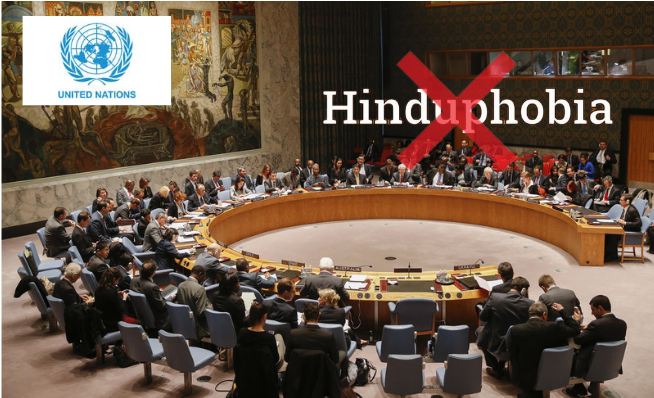India has spoken against Woke culture. India has spoken against the global Islamist and liberal lobby that seeks to associate “right-wing” ideologies with those of violent extremism and “domestic terrorism”. India has spoken against the Democrat-led United States of America and its lackey forces around the world.
India has spoken hard, and has hit the nail on the head this time.
For many months now, we at TFI have been urging the Indian government to learn to deal with Woke culture from France. The government seems to have taken the cue, and India’s message to the world community is crystal clear.
India has called on the United Nations to recognise ‘Hinduphobia’ along with other acts of religious hatred against Sikhism and Buddhism. India’s U.N. envoy T.S.Tirumurti said that the U.N.’s latest Global Counter-Terrorism strategy passed last year is full of flaws and is selective, and could reverse gains from the global consensus in the “war on terror” post 9/11.
Hinduphobia is real. Hatred for Hindus is a phenomenon that in India, at least, requires no introduction. Many from a particular community feel a seething sense of disgust for Hindus. Given this particular community’s rather large share in global demography, Hinduphobia has also become an international problem. Hindus are being made victims of hate crimes and racial slurs around the world – particularly in the West. The same is the case with Sikhs and all other Indic minorities. They are all falling prey to the hate of either Islamists or White supremacists.
In India, the anti-Hindu Delhi riots of 2019 are glaring examples of how many wish to cause grave damage to Hindus. Now, if India does not speak for Hindus, Sikhs, Buddhists and Jains, who will?
The good thing is that India has found its voice.
India’s U.N. envoy T.S Tirumurti said, “In the past two years, several member states, driven by their political, religious and other motivations, have been trying to label terrorism into categories such as racially and ethnically motivated violent extremism, violent nationalism, right wing extremism, etc. This tendency is dangerous for several reasons.”
Next, Tirumurti – speaking as India’s representative to the United Nations, raised a very important point. He said that only religious phobias against “Abrahamic religions”: Islam, Christianity and Judaism had been named in the “Global Counter Terrorism Strategy’s” 7th review passed by the U.N. General Assembly in June 2021.
He added, “The emergence of contemporary forms of religiophobia, especially anti-Hindu, anti-Buddhist and anti-Sikh phobias is a matter of serious concern and needs attention of the U.N. and all member states to address this threat.” And in a scathing indictment of western media’s coverage of India and its “right wing” government, Tirumurti said that putting “labels” to “so-called” threats was “misleading and erroneous”.
Read more: India forces the USA to accept that Hinduphobia exists
It has increasingly become the norm that when someone talks about Hinduphobia, they are given sermons that it is not even real, even while several incidents prove otherwise. By pushing the United Nations to recognise Hinduphobia as a hateful ideology, and by getting it to accept that there exists a palpable sense of hatred among many Sikhs and Buddhists – India is making a mark for itself in the ideological space of the world.
India is now setting the agenda. For far too long, world leaders, activists and the United Nations too have occupied themselves with trying to contain ‘Islamophobia’. In the process, Indic communities have suffered and their pain has gone unnoticed.
India is drawing the world’s attention to the struggles of Hindus, Sikhs and Buddhists, and all countries will be well advised to sit up straight and take notes.
